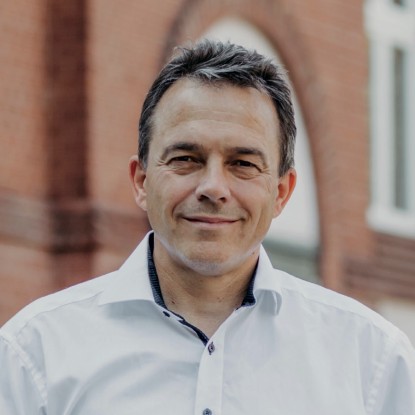Session: Data Science for Processes and Control
Chair: Prof. Ali Mesbah, University of California, Berkeley
Machine learning for cyber-physical systems
Rolf Findeisen, Prof.-Doc. Ing. and Head, Department of Cyber-Physical Systems and Mechatronics, Institute for Automation Technology and Mechatronics, Technical University of Darmstadt
Prof.-Doc. Ing. and Head, Department of Cyber-Physical Systems and Mechatronics, Institute for Automation Technology and Mechatronics, Technical University of Darmstadt
Rolf Findeisen has been Professor and Head of the Department of Cyber-Physical Systems and Mechatronics at the Technical University of Darmstadt. Prior to August 2021, he was University Professor and chair of system theory and control engineering at the Institute for Automation Technology at the Otto von Guericke University in Magdeburg. He earned his doctorate at the ETH Zurich at the Institute for Automatics, his Master of Chemical Engineering at the University of Wisconsin, Madison, and his Diploma Engineering Cybernetics at the University of Stuttgart. His particular focuses include:
- The fusion of control and learning with guarantees
- Network-controlled/cyberphysical systems ensuring modularity, resilience, and plug and play operation
- The control of mechatronic and robotic systems.
Smart systems engineering contributing to material and process development for a carbon-neutral future
Xiaonan Wang,  Associate Professor, Tsinghua University / Adjunct, National University of Singapore
Associate Professor, Tsinghua University / Adjunct, National University of Singapore
Smart approaches are indispensable for sustainable development towards the target of future net-zero emissions in light of pressing environmental and climate change challenges. Advances in artificial intelligence (AI), especially machine learning (ML), provide an enormous variety of smart tools for processing complex data and information generated from experimental and computational research, as well as industrial applications. AI and ML have substantially impacted the research and development norm of new materials and processes for energy and environment. Different data-driven strategies can be utilized at each stage of material characterization, property prediction, synthesis, process design, control and optimization, as well as theory paradigm discovery to accelerate the whole development process.
This talk will first provide an overview and perspectives on data science applications to materials/chemicals discovery and synthesis. Furthermore, active learning strategies to incorporate ML in the high-throughput computational and/or experimental loop are introduced as effective approaches to accelerate the discovery of new materials with desired functionality, especially accounting sustainability. Ultimately, these smart technologies could enable autonomous materials discovery, process optimization, and all aspects of the next-generation intelligent laboratory and industry, thereby facilitating improvement in energy efficiency, emission reduction, and eventually the realization of carbon neutrality target. The challenges to be addressed and prospects of AI and data science applications in material and process discovery are also highlighted.
Xiaonan Wang is currently an Associate Professor in the Department of Chemical Engineering at Tsinghua University. She received her BEng from Tsinghua University in 2011 and PhD from University of California, Davis in 2015. After working as a postdoctoral research associate at Imperial College London, she joined the National University of Singapore (NUS) as an assistant professor since 2017 and later became an adjunct associate professor. Her research focuses on the development of intelligent computational methods including multi-scale modeling, optimization, data analytics and machine learning for applications in advanced materials, energy, environmental and manufacturing systems to support smart and sustainable development. She is leading a Smart Systems Engineering research group at NUS and Tsinghua of more than 20 team members as PI and also the deputy director of the Accelerated Materials Development programme in Singapore (S$25M funding).
She has published more than 120 peer-reviewed papers and 3 book chapters, organized and chaired international conferences, and delivered more than 50 presentations and invited talks at conferences and universities on five continents. She is an associate editor/editorial board member of 10 SCI journals; e.g., Applied Energy, Advanced Intelligent Systems. She was recognized as a World’s Top 2% Scientists, 50 Women In Tech by Forbes China, AIChE-SLS Outstanding Young Principal Investigator, Young Researcher Award for Engineering Sustainable Development, IChemE Global Awards Young Researcher finalist and selected for Royal Society International Exchanges Award, as well as best paper awards at IEEE and Applied Energy conferences and journals.